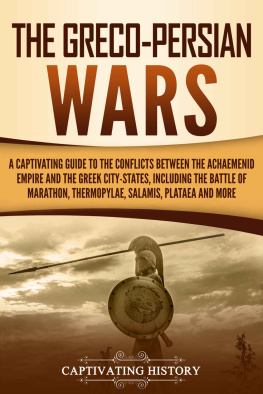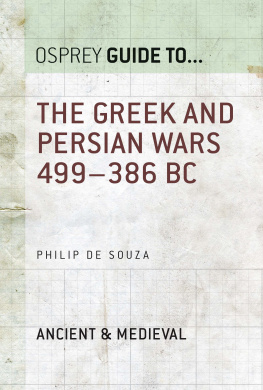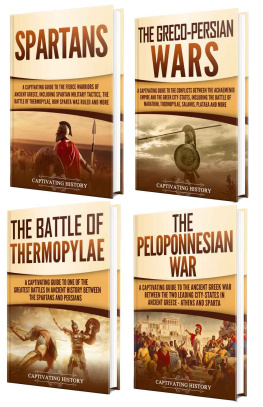THE BATTLE OF MARATHON
KEY INFORMATION
When: 13th September 490 B.C.
Where: Marathon (Greece)
Context: The Greco-Persian Wars (490-479 B.C.)
Belligerents: Athens and Plataea (city of Boeotia) against the Persian Empire
Commanders and leaders:
Miltiades, Athenian strategist (550-489 B.C.)
Callimachus of Aphidna, Athenian polemarch (6th century-498 B.C.)
Datis the Mede, Persian admiral (late 6th century-early 5th century B.C.)
Artaphernes, Persian general (late 6th century-early 5th century B.C.)
Outcome: Greek victory
Victims:
INTRODUCTION
A decisive victory of the Greeks over the Persian forces, the Battle of Marathon ended the first Greco-Persian war in 490 B.C. This is one of the most famous feats in ancient history.
In 490 B.C., Darius I, king of the Persian Empire (522-486 B.C.), wished to extend his hegemony to the Aegean Sea and mainland Greece. To do this, his army first occupied Thrace and Macedonia, then headed towards the city of Athens. The Persian king was indeed driven by his desire to punish the Greek cities, which were guilty of having supported the Ionians, who revolted against Persia in 499 B.C. After having conquered and looted several islands in the Aegean Sea, Datis, commander of the Persian fleet, landed his troops in the plains of Marathon (on the east coast of Attica, about 40 kilometers from Athens). After five days of facing one another, the Persian army was defeated and had to return to Minor Asia.
From then on, the Athenian propaganda appropriated the battle and turned this victory into a mythical event, by extolling the courage of the hoplites (foot soldiers of Ancient Greece), who fought, risking their lives to defend their land and maintain their independence.
G OOD TO KNOW
There are very few ancient sources on this period. As the Persians did not leave any written testimony of their history, the main sources are Greek: therefore, we are dependent on The Histories by Herodotus (Greek historian, 484-420 B.C.) and Bibliotheca historica by Diodorus Siculus (Greek historian, 90-30 B.C.). The story of the Greco-Persian Wars told by Herodotus, dating from 445 B.C., constitutes the most contemporary source to the facts. To write this book, the historian used several Attic, Spartan and Ionian oral sources that he collected during his travels. Despite some approximations and the liberties taken with regards to reality, The Histories remains a valuable book, which attempts to clarify the events in the light of the Greek and Persian perspectives.
POLITICAL AND SOCIAL CONTEXT
The Battle of Marathon took place during the Greco-Persian Wars (490-479 B.C.). It was the culmination of a conflict between some Greek cities and the Persian Empire.
The conflict can be broken down into three parts:
The expansion of the Persian Empire (6th century B.C.);
The revolt of Ionia and its repression (499-497 B.C.);
The Aegean strategy of Darius I (491-490 B.C.).
EXPANSION OF THE PERSIAN EMPIRE
In the early 5th century B.C., the Persian Empire extended from modern day Pakistan to the Mediterranean coast and Egypt. Eager to expand his possessions, Cyrus II the Great (Persian king, c. 556-530 B.C.) defeated the Greek colonies in Minor Asia, called the Ionian cities, around 550 B.C.
Around 513 B.C., his successor Darius I reorganized his vast empire by creating provinces (called satrapies) and building two administrative cities: Susa and Persepolis. Keen to make further conquests, he gained new territories by invading the Indus Valley (Northern India).
Once his eastern base was consolidated, Darius I turned to the Black Sea, where he wanted to extend his influence to control the trade of precious metals, wheat and wood. He then began a series of conquests by taking the cities of Thrace and defeating the kingdom of Macedonia. Thrace gave him considerable benefits, as the area was rich in forests and silver mines. The Persians also gained control of two strategic straits:
From then on, the empire controlled maritime traffic between the Aegean and the Black Sea. The Athenians, eager to dominate the lucrative market of the Black Sea, also established colonies at the Hellespont. Therefore, the progress of the Persians towards the west jeopardized their desires, soon causing a rivalry to rise between them.
To perfect his economic domination, the Persian king attacked the Scythians (settled north of the Black Sea, in South Russia) who were constantly earning wealth thanks to the trade relations they had with the Greek cities. However, he failed in his defeat and was forced to retreat. He then turned to the conquest of Greece.
THE IONIAN REVOLT
Darius I sailed to mainland Greece with the intention of defeating Athens and Eretria, as well as dominating the periphery of the Aegean Sea. In addition, he wanted to avenge the cities that had come to the aid of the Ionians during their revolt against the Persians.
Ionia (the western coast of modern day Turkey) was composed of a dozen autonomous cities, all subject to Persian power from 540 B.C. They were able to retain their language, religion and customs, but were governed by the tyrant nominated by the Persian king. One of the cities, however, had a special status that gave it some independence: Miletus. Nonetheless, despite its relative autonomy, it also suffered from the Persian commercial dominance in the Aegean. Thus, as royal taxes increased, the Ionian cities grew indignant and expressed their desire for emancipation. They were also weakened economically by the limited trade in the Aegean, especially since the capture of Byzantium.
Therefore, Aristagoras, the tyrant of Miletus (late 6th century B.C.), proposed to the Persian satrap of Lydia that he conquer the Cyclades (Greek archipelago of the Aegean Sea) in the name of the empire; however, he did not honor his commitment. Driven by the fear of being assassinated or deposed, Aristagoras encouraged the people of Miletus to revolt. He proclaimed equal citizenship (called Isonomia) for Miletus and for all of the Ionian cities, which, therefore, chased away their tyrants. Aristagoras found military aid in Athens and Eretria which was limited, but official to face the Persian army.
G OOD TO KNOW
Isonomia (from the Greek isos, meaning equal and nomos, meaning law) refers to the equality of citizens before the law. This notion appeared with Cleisthenes (Athenian statesman, second half of the 6th century B.C.) in the reforms introduced in 508-507 B.C. This political upheaval established the foundations of Athenian democracy, namely by strengthening the power of the ecclesia, a sovereign assembly that exercised legislative power and in which any citizen could participate. When revolts began against Darius I, Miletus therefore followed in the footsteps of Athens. This did not please the Persians at all, who had become accustomed to installing tyrants at the head of the Greek cities and were fundamentally opposed to the democratic conception of politics.














